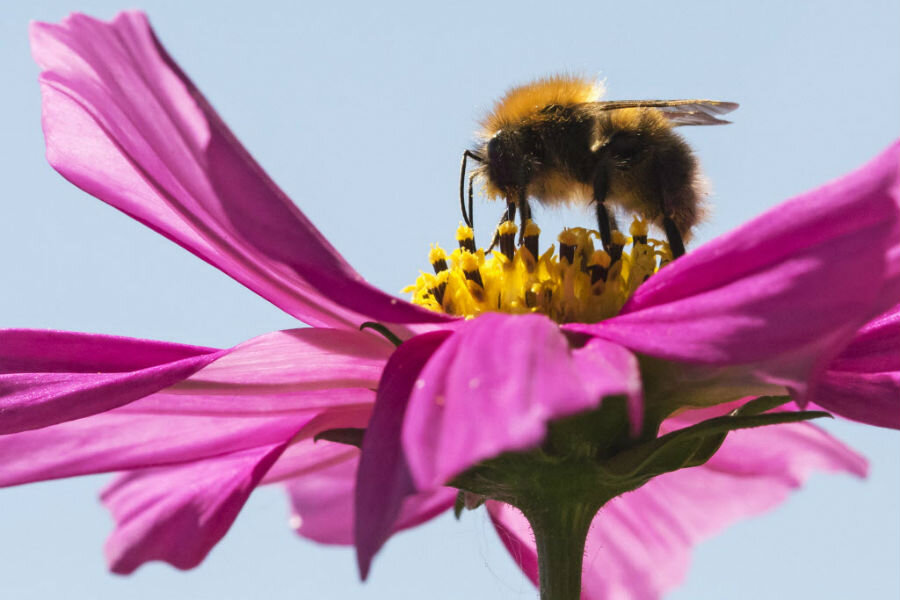How the pesticide lobby impacts bee protections
Loading...
Last week, Friends of the Earth (FoE) released a report, titled "Buzz Kill: How the Pesticide Industry is Clipping the Wings of Bee Protection Efforts Across the U.S." The report, by Christopher Cook and Tiffany Finck-Haynes, details the pesticide industry’s outsized role in weakening and delaying bee protection plans across the country.
Bees play a vital role in the food system, pollinating one-third of all foods. But bees are dying at an alarming rate. According to an estimate by the United Nations, 40 percent of pollinator species are facing extinction globally. In the United States, honeybee populations are dropping at an average of 30 to 40 percent annually.
The report identifies pesticides as the leading cause of the population decline in pollinators. Authors cite a growing body of research showing that the most widely used type of insecticide, neonicotinoids, is harmful to bees’ nervous and immune systems, as well as their foraging and navigation abilities. Glyphosate, the active ingredient in Monsanto’s Roundup® products and the most heavily used herbicide, has been tied to the decline in the monarch butterfly population.
In response to the dangerous and undeniable rise in honeybee losses, state and federal officials have called for regulatory reforms. But, according to the report, agrochemical companies, including Bayer, Syngenta, and Monsanto, are fighting against proposed pesticide reforms by investing millions in heavy lobbying, shuffling employees between regulatory agencies and agrochemical companies, and influencing scientific research to blame honeybee losses on factors besides pesticides. The authors say these multilayered tactics are designed to manufacture doubt about the science on pesticides and delay meaningful action on pesticide regulation.
As a result of industry efforts, a patchwork of vague state policies has emerged instead of clear-cut federal regulations. These state policies, or Pollinator Protection Plans, offer mostly voluntary pollinator protections and don’t require pesticide applicators to report where they apply pesticides. They also lack measurable metrics to evaluate compliance. The authors of the FoE report also point out that during the state planning processes, pesticide companies were considered important stakeholders, while beekeepers were systematically disregarded.
Despite industry efforts, some local governments and states have succeeded in limiting neonicotinoid use, notes the report. More than 25 municipalities and universities across the U.S. have restricted the use of the pesticide. In early 2016, Maryland and Connecticut became the first states to restrict consumer use of neonicotinoids. But Cook and Finck-Haynes find that stronger measures are still needed to protect pollinator health.
“Our government is giving more weight to the pesticide industry than to protecting bees, beekeepers, our food supply, and the environment,” says author Tiffany Finck-Haynes. “It is critical for policymakers to stand up for the long-term health of our food system, not the short-term profits of companies that manufacture a leading cause of bee declines.”
This article originally appeared on Food Tank.







